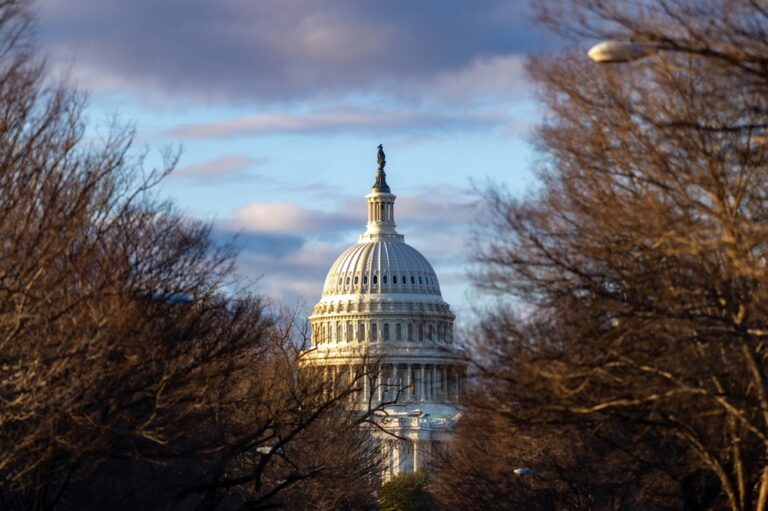The United States Senate has passed a vital funding bill that could end the country’s longest-ever government shutdown within days. The measure was approved late on Monday by a 60-40 vote, with nearly all Republicans and eight Democrats supporting it. The deal secures government funding until the end of January.
The legislation now heads to the House of Representatives, which must pass it before President Donald Trump can sign it into law. Trump said earlier on Monday that he was prepared to approve the measure. The breakthrough followed a weekend of bipartisan negotiations aimed at restarting government services and bringing federal employees back to work.
Bipartisan Votes Push Bill Forward
Republicans, who control the Senate with a 53-47 majority, needed at least 60 votes to pass the bill. Democratic Senators Dick Durbin, John Fetterman, Catherine Cortez Masto, Maggie Hassan, Tim Kaine, Jackie Rosen and Jeanne Shaheen joined Republicans to back the measure. Maine’s independent senator Angus King, who caucuses with the Democrats, also voted in favour.
Only one Republican, Rand Paul of Kentucky, voted against the bill. When the final result was announced, the remaining senators in the chamber cheered. “We are reopening government and ensuring that federal employees are finally paid what they earned,” said Republican Senator Susan Collins, one of the bill’s authors.
Shutdown Deepens Economic and Social Strain
Since October, the shutdown has left 1.4 million federal employees without pay, either working for free or on unpaid leave. The impact has rippled through the economy, disrupting travel, food programs and public services across the nation.
FlightAware reported over 2,400 cancelled flights and around 9,000 delays on Monday. Food assistance for 41 million low-income Americans has been suspended, and several federal agencies have shut down, slowing operations that millions depend on daily.
House Faces Divided Vote and Tight Majority
The Republican-led House of Representatives now holds the key to ending the crisis. Lawmakers have been absent from Washington since mid-September, but Speaker Mike Johnson has recalled them for a vote starting Wednesday.
With only a two-seat Republican majority, every vote will matter. Lawmakers face mounting pressure from both sides of the aisle to end the shutdown quickly and restart essential government functions.
What the Funding Deal Includes
The bill funds the federal government through 30 January and provides full-year budgets for the Department of Agriculture, military construction and legislative agencies. It guarantees back pay for federal employees and extends the Supplemental Nutrition Assistance Program (SNAP) through September next year.
The agreement also sets a December vote on extending healthcare subsidies due to expire this year. These subsidies help millions of Americans afford health insurance through government exchanges. Democrats had demanded this commitment before backing the new funding measure.
Democratic Split Over Compromise Deal
The agreement, negotiated by Senate Majority Leader John Thune, the White House, and Democratic Senators Jeanne Shaheen and Maggie Hassan, has divided the Democratic Party. California Governor Gavin Newsom criticised the decision, calling it “pathetic.” Senate Minority Leader Chuck Schumer said the deal “fails to address America’s healthcare crisis.”
Virginia Senator Tim Kaine, who voted for the bill, defended the decision, saying federal workers in his state were “relieved” that help was on the way. Thune promised to revisit healthcare subsidies in December, but Speaker Johnson has said he will not bring that measure to a vote in the House.
Trump Signals Support for Deal
President Trump told reporters earlier on Monday that he would sign the funding bill if it reached his desk. “We’ll be opening up our country very quickly,” he said from the Oval Office. “The deal is very good.”
If the House approves the measure, the shutdown could end within days, bringing relief to federal employees and restoring vital public services. The vote would close a historic political standoff that has tested Washington’s leadership and the patience of millions of Americans.

